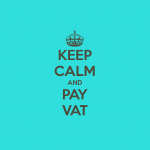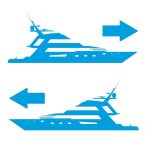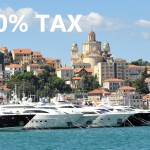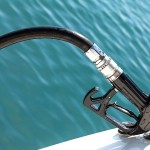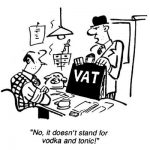
VAT EXEMPTION REGIME APPLICABLE TO VESSELS
On September 2017, the Italian Tax Authorities (Agenzia Delle Entrate) and the Association of Italian Shipbuilding Industry (“Unione Nazionale Cantieri e Industrie Nautiche”, “UCINA”), issued the general guidelines on tax and yachting matters (Guidelines), contained in the book “Nautica & Fisco (see also https://ucina.net/en/ucina-new-tax-rules-for-the-nautical-sector/)”. The Guidelines provide further explanations about VAT exemption for transactions related to vessels:
a. used for commercial purposes
b. used for navigation on the high seas (“navi adibite alla navigazione in alto mare”).
Primarily, on 12 January 2017, Agenzia Delle Entrate issued the Resolution 2/E providing certain clarifications on the definition of vessels used for navigation on the high seas for the purpose of the application of the exemption regime under Article 8-bis, letter a) and letter d) of the Presidential Decree No. 633/1972.
Specifically, the above mentioned Article 8-bis reproduces the content of Article 148, letter a), c) and d) of Directive 112/2006/EU, providing for an exemption of certain operations relating to “vessels used for navigation on the high seas and for carrying passengers for reward or used for the purpose of commercial, industrial or fishing activities”.
In this respect, taking into account the position expressed by the Court of Justice of European Union, the Agenzia Delle Entrate pointed out that:
1. In order to benefit of the exemption regime, the condition that the vessel shall be “used for navigation on the high seas” refers to vessels carrying passengers for reward, or used for the purpose of commercial, industrial or fishing activities, but it does not refer to vessels used for rescue or assistance at sea or to vessels engaged in inshore fishing (CJEU, Elmeka, joint proceedings C-181/04 e C-183/04).
2. For VAT purposes, “high seas” shall be intended as that part of the sea exceeding the maximum limit of 12 nautical miles from the base lines under International Law of the Sea (Article 3 of the Montego Bay Convention of 1982).
3. In order to assure that the exemption regime under Article 8-bis of Presidential Decree 633/1972 is applied, with limited reference to the cases provided by the law (i.e., only to vessels actually and for the predominant part navigating on the high seas), it not sufficient to exclusively take into account the length or tonnage of the vessel.
For the above reasons, the Agenzia Delle Entrate clarifies that “a vessel can be considered as used for navigation on the high seas if, with reference to the preceding year, she has effected, by more than 70%, voyages in the high seas (i.e., beyond the 12 nautical miles)” and “such condition shall be verified for each tax period based on official documentation”.
With specific regards to the adequate “official documentation” necessary to prove the prevalence of voyages carried at the high seas, the Resolution No. 6/E, released by the Italian Tax Authority (Agenzia delle Entrate) on 16th January 2018, provides the below list of documents that shall be considered as “official”:
i. the Log Book (also known as ship’s log or captain’s log), according to articles 169-173 and 174 of the Italian Navigation Code (Codice della Navigazione).
ii. The maps of voyages as well as the data extracted from the ship’s tracking or identification systems (for instance, with no limitation, the A.I.S., GPS, etc.).
iii. The charter contracts, invoices and relevant payments.
As of today, such documentation is absolutely necessary to prove the “high sea cruising condition”. If the Company owning the vessel is not able to provide the suppliers with all or any of the above listed official documents, a mere statement issued by the yacht Owner/Master (self-declaration) declaring the “high sea cruising status” of the vessel might suffice just if the Declarant (Owner, Captain, Master, Manager, or any other person in charge for this, clearly listing his connection with the vessel or position on board, etc.), clearly explains the reasons why it is not possible to provide the required documents.
DEFINITION OF “VOYAGE”
Pursuant to the Guidelines and according to the provisions contained into the Resolution No. 6/E dated 16th January 2018, “voyage” shall mean any cruise carried out between ports (Italian, EU and/or non-EU ports) where embarkation/disembarkation of goods and/or people take place or more generally where said ports are used by the vessel for the purposes of carrying its commercial activity. Within the same Resolution (6/E) the Italian Tax Authority clarified that for “voyage” shall be intended also any cruise starting from and coming to the same port (also known as “circular cruises” or “circular voyages”). If during a “circular voyage” (starting from and coming to the same Italian port) the 12 nautical miles at some point will be crossed by the vessel to sail the high seas, said voyage is qualified as an “international voyage” (voyage at the high seas). Further, any voyage entirely carried outside the Italian territorial waters (exempli gratia: any charter contract having both embarkation and disembarkation places in France) shall be considered as international voyages (voyage at the high seas) as well. If on the contrary a “circular voyage” will only take place within the 12 nm Italian territorial line, said voyage cannot be considered as an “international voyage”.
Lastly – still in respect of the calculation of the 70% of voyages – the Italian Tax Authority explained, with Resolution 6/E, that any displacement (moving from/to) of the vessel to one other port or shipyard for technical reasons (even if those reasons are connected to the vessel’s commercial activity) cannot be considered as a “voyage” and so cannot be included into the calculation of the 70% of voyages.
Moreover, the “high sea cruising condition” shall be verified each year. In case of a percentage of voyages greater than 70% during a calendar year, the VAT exemption pursuant to Article 8-bis applies to the following calendar year. In the event that the percentage above does not exceed 70% during the calendar year, it shall be no longer possible to enjoy the VAT exemption as from 1 January of the following year, except in the special cases listed hereinafter:
a. the vessel is under construction, or
b. the vessel has not yet carried out any voyage in the sea.
Only in these cases, it could be possible to apply the VAT exemption on the basis of a statement declaring the intention to use the vessel on the high seas. Therefore, in order to issue an invoice VAT exempted under Article 8-bis, the supplier shall require the owner or the person responsible for the yacht (for example, the master of the yacht) to provide a statement attesting: the declarant’s personal data, the legal status of the declarant in relation to the vessel and the period for which the statement is provided. However, in the following year, the declarant shall verify if “70% high sea voyages condition” is met and, in the event of a failure in reaching the 70% of voyages on high sea, he shall inform the supplier accordingly. On the contrary, if such condition is met, the declarant shall provide the supplier with the official documentation proving that voyages on high sea, as described above, have been carried out.
COMMERCIAL USE (THE CONDITION)
To enjoy the VAT exemption, in addition to the “high sea cruising condition”, another condition shall be met. Said condition is that the vessel must be used for commercial purposes. Therefore, any transaction related to vessel intended for sport or pleasure purposes shall be excluded from the VAT exemption.
Firstly, it has to be pointed out that, VAT exemption shall apply, in any case, to vessels registered in the International Register, since such registration implies that the registered vessels shall be used for commercial purposes only.
In addition, the Italian pleasure yacht code (“Codice della Nautica da Diporto”) provides a list of cases of commercial use of pleasure yacht, including, charter, leasing, professional teaching of navigation and activities carried out by diving centres using the vessel as basis for diving; for which, generally, the VAT exemption also applies.
However, to benefit of the VAT exemption, the commercial use of pleasure yachts shall be attested by a public register (Italian, International or foreign). Hence, as a general rule, the relevant foreign Harbor Authority or the relevant foreign shipping register shall indicate the use for business purposes of the vessel by inserting, for example, the wording “Commercial Yacht”/“Commercial Vessel/ Yacht in commercial use” in the relevant records. The VAT exemption, as above described, also applies to any advanced payment made during the construction of pleasure yachts, in accordance with the terms of the contract executed between the parties. When the VAT exemption is required for the purchase of a new pleasure yacht, the seller shall require a certificate of the Company Register attesting that that the buyer’s core business is a commercial activity in the maritime sector.
Finally, it has to be underlined that, the transfer of a vessel, registered or to be registered for non-commercial use (private use), to a natural person, shall not qualify for VAT exemption.
Moreover, to register a pleasure yacht as having commercial purposes when it is conversely used for personal purposes may imply significant sanctions. In fact, by law, pleasure yacht used for commercial purposes must be exclusively used for the activities for which they are officially registered. Nevertheless, the use of private pleasure yacht for occasional charter activities is allowed by law, but it never can be qualified as commercial use for VAT exemption purpose.
Part of the hereby provided info has been provided by ucina.net.
For any questions or additional info please email us to info@yachtwelfare.it
Download useful files and documents:
YW News “VAT” 2018 (pdf)
Resolution 6/E January 2018
Resolution 2/E Januery 2017
